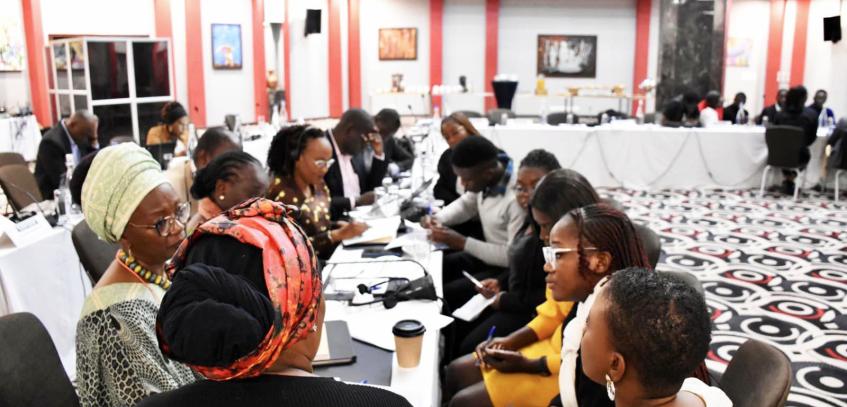The Civil Society Engagement on the Legal Framework of the Draft Model Law on Gender Equality currently underway in Lusaka, Zambia has identified women’s land rights as a concrete deliverable to realize full gender equality.
Under the Protocol to the African Charter on Human and Peoples' Rights on the Rights of Women in Africa (Maputo Protocol), African countries recognize that women and men have the right to an equitable sharing of joint property deriving from a marriage.
Civil Society emphasized that land rights have a strong empowering effect on women: it reduces their reliance on male partners and relatives, increases their bargaining power within the household, and improves their chances of accessing extension services and credit.
They added that the confidence gained from increased tenure security can further encourage them to undertake land and other agricultural investments and to join producer organizations. As such, placing women’s land rights at the heart of national land and gender policies has the potential to significantly improve human well-being, promote women’s economic empowerment and ultimately generate more productive agricultural systems.
However, Members of the Civil Society from the Southern African Region told the Pan-African Parliament Committee on Gender, Permanent Committee on Gender, Family, Youth and People with Disability that the realization of women’s land rights often tends to get no further than the level of action plans and policies that are rarely implemented, due to a lack of real political commitment and the patriarchal values that still predominate in Africa.
Some of the identified challenges impacting equality in the area of land include land grabbing, and lack of information on how to use the land. Following vigorous deliberations which included group working sessions, participants made various proposals for incorporation in the Draft Model Law on Gender Equality under formulation by the Pan-African Parliament. They called for the Model Legislation to ensure provisions for countries to adopt policies that will guarantee equitable and non-discriminatory land sharing.
Other key recommendations include the need to define equitable and equal land rights distribution and harmonizing written, and customary laws on land access through a consultative process at continental and national levels. Additionally, representatives of Civil Society pointed to the importance of the education of women on land laws, the creation of public awareness, and the eradication of unlawful land distribution.
The Pan-African Parliament Committee on Gender is currently engaging Civil Society Organizations in Southern Africa to solicit and gather inputs from the grassroots populations, on the Legal Framework of the Draft Model Law on Gender Equality. The Committee is also consulting with Civil Society on areas such as education, employment, equal remuneration, social protection, political participation as well as participation in decision-making processes.
This engagement, the first of many to be held across the continent, will aid in promoting the Model Law and enable grassroots organizations to partake in Parliament’s and ultimately the African Union’s decision-making processes aimed at enhancing their well-being, especially in line with gender equality.
-Ends-








